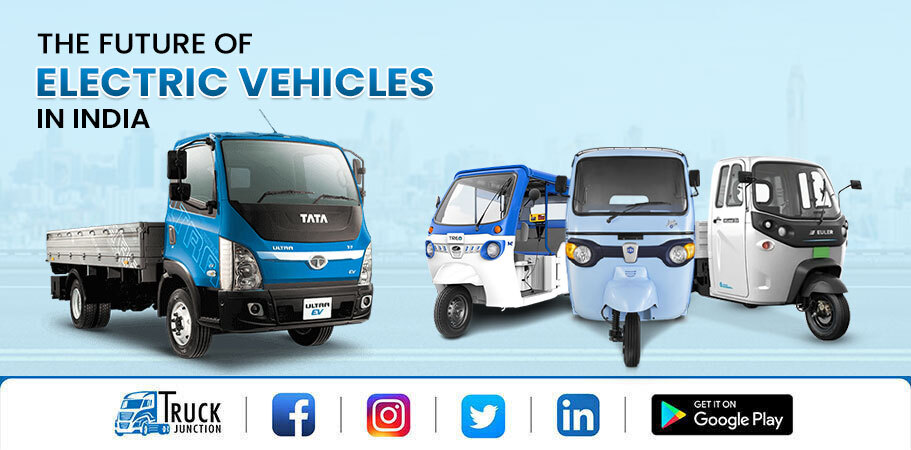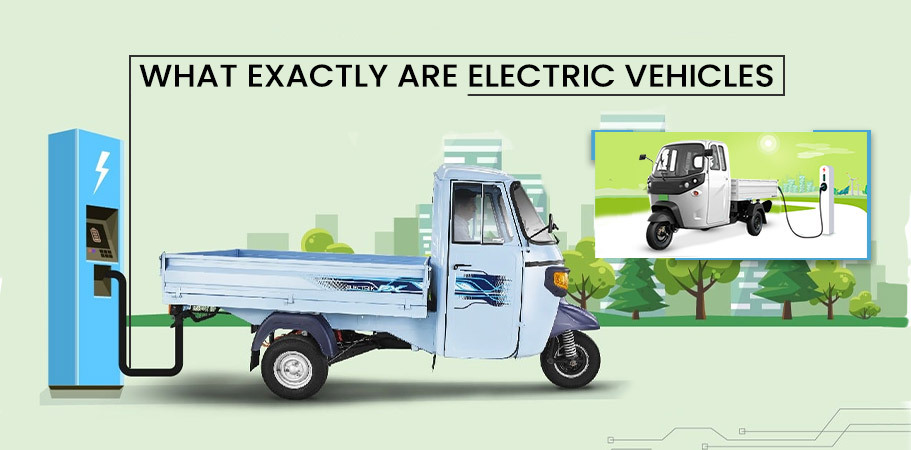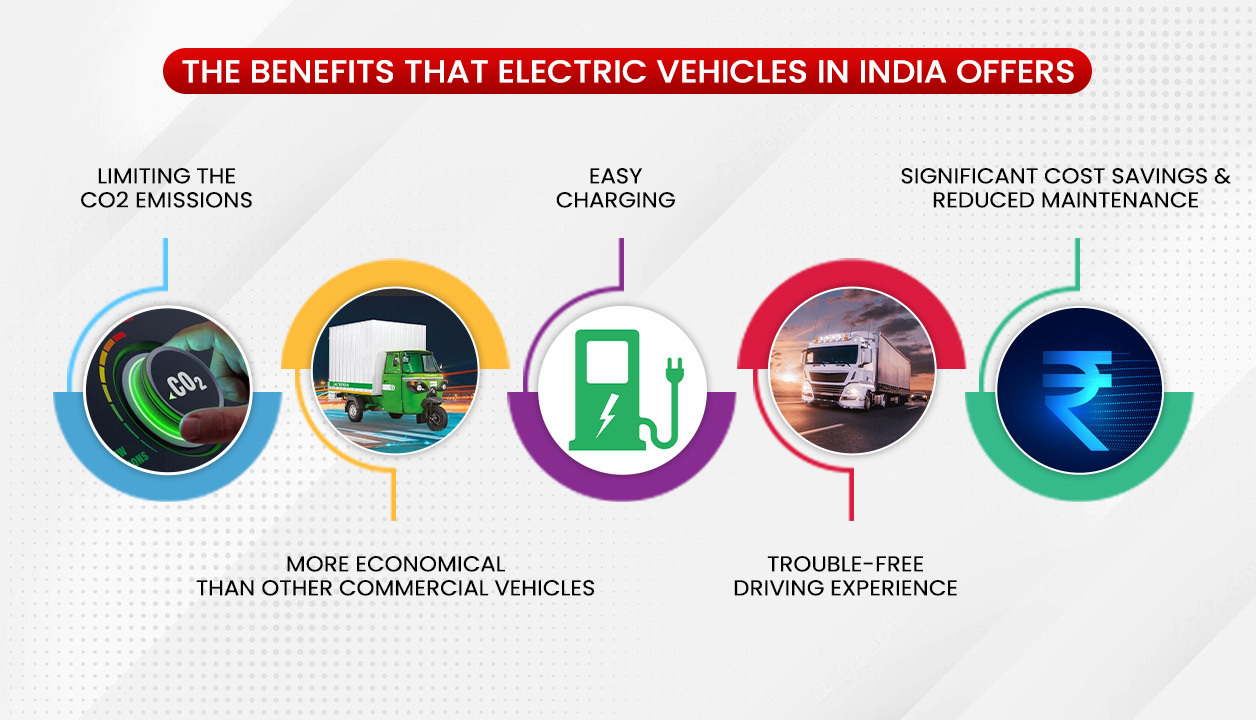Future of The Electric Vehicles in India with Detailed Insights

How the Future of Electric Vehicles Look Like In India?
With climate change on the rise, making environmentally sustainable choices and limiting global warming is critical. Electric vehicles (EVs) are, however, one environmentally friendly option. The worldwide automotive industry is going through a major transformation. Why? Because it strives to switch to the alternate solution, less energy-intensive alternatives. The rise in global oil prices, soaring pollution, and worldwide promises to combat climate change globally are among the driving factors behind India’s recent measures to expedite the transformation to e-mobility. Consequently, at the Meeting of the Parties 26 (COP26) Summit, India dedicated itself to having at least 30 per cent of the overall private automobiles be New Electric Vehicles by 2030.
This thorough blog will take you through the Future of EVs in India.
What Exactly are Electric Vehicles?

Before we move forward, let’s understand the basics of Electric Trucks. An electric vehicle (EV) is an automobile that runs on electricity instead of using an internal-combustion engine. It generates power by combusting a combination of fuel and gases.
As an outcome, such a machine acts as a potential substitute for existing vehicles to tackle problems such as increasing sudden pollution levels, rising temperatures, the depletion of natural resources, etc.
However, the notion of Electric Vehicles Transport has existed for a long time. It has received great attention in the last couple of years. Due to the growing ecological footprint, including other environmental consequences of gasoline-powered vehicles.
Benefits That Electric Vehicles in India Offers

Tesla has emerged as one of the most prolific EV companies/brands globally. Still, many others, such as Mercedes-Benz, Tata, MG, GM, Audi, Hyundai, Nissan, BMW, and Renault, have initiated Best Electric Vehicles that customers receive well in various marketplaces.
There’s absolutely no reason to suspect that EVs are the game changer in driving and manoeuvrability. And while newly developed materials in battery technology could be used, and advancements will continue, the trend is irrecoverable for the reasons listed:
LIMITING The CO2 EMISSIONS
You might be unaware, but transitioning to EVs will reduce India’s CO2 emissions by one gigatonne by 2030. This accomplishment will result in less environmental pollution in metropolitan areas and mini-metros, keeping both present and future generations healthy.
The world is dealing with rising temperatures, not even just India. By investing in Most Powerful Electric Vehicles, car owners can help safeguard the planet, our only home. With negligible emission levels made feasible by large numbers of vehicle purchasers, we will all gain an advantage.
MORE ECONOMICAL THAN OTHER COMMERCIAL VEHICLES
Electric vehicles have much lower running expenses than gasoline or diesel-powered ones. It is because electric vehicles begin charging their batteries using electricity instead of relying on non-renewable energy fuels such as gasoline or diesel. As a result, electric vehicles seem more effective.
When combined with the expense of electricity, charging an electric vehicle is less expensive than refilling it with petrol or diesel for your transportation needs.
The utilization of renewable energies can end up making the utilization of the Future of EV Charging more environmentally friendly. In addition, the price of electricity can be whittled down even further if charging is completed using renewable energy sources installed at the residence, such as solar panels.
EASY CHARGING
There is no requirement to locate the closest gas station to refuel. Instead, begin charging your electric vehicle at home, and you’re ready to kickstart your journey. With modern charging technology and the advanced Future of EV Batteries, users can charge an EV fast or use battery swapping services to continue travelling without considering conventional fossil fuel accessibility.
TROUBLE-FREE DRIVING EXPERIENCE
Electric vehicles do not have gears and are extremely simple to operate. There are simply three controls: accelerate, brake, and steer. Then, connect your vehicle to a house or public charger to start charging it. Electric vehicles, too, are quiet, which aids in minimizing noise pollution generated by conventional vehicles.
SIGNIFICANT COST SAVINGS & REDUCED MAINTENANCE
Lastly, Electric vehicles have fewer moving parts, resulting in less harm than a typical non-electric vehicle. It can further aid in saving you money on overhead expenses!
Statistics & Figures About EVs You Must Know About
It is not wrong to say that the Future of Electric Vehicles in India seems to be way more progressive and gaining momentum. These surprising statistics and numbers are the proof:
- The Indian EV sector captivated $6 billion in funding in 2021 and is gradually becoming increasingly appealing to private equity/venture financiers.
- The Indian automobile industry is the nation’s fifth biggest and is anticipated to surpass the third highest by 2030.
- Approximately 15 lakh Electric Vehicles for Sale and commercial vehicles are registered in India.
- The Indian electric vehicle market amounted to USD 220.1 million in 2020. It is anticipated to expand at a CAGR of 94.4% between 2021 and 2030.
- NITI Aayog intends the EV adoption rate for all commercial vehicles to be 70% by 2030, 30% for personal vehicles, 40% for buses, and 80% for two and three-wheelers. It intends to reach net zero greenhouse gas emissions by introducing All Future Electric Vehicles by 2070.
Best Electric Vehicles in India You Should Think Of Buying
Electric vehicles have begun to gain traction in major urban areas. As automobile manufacturers like Tata Motors, Mahindra, and MG Motors introduce more conventional EVs to the segment, more startup companies are concentrating on making the supercharger network more widely available. As widespread adoption grows, Electric Vehicles Cost are expected to fall gradually but steadily. The federal government, as well as various state legislatures, too are going to subsidise EV purchases and provide benefits to consumers.
Being said that, here we have mentioned the go-to Electric Vehicle List that can help you make the right decision and sound investment choices.
- Tata Ace EV Mini Truck
- Piaggio Ape E City/ Fixed Battery Auto Rickshaw
- Mahindra Treo
- Mahindra E-Alfa Mini Auto Rickshaw
- Montra Electric Super Auto
- Mahindra E-Supro Cargo Van Tempo Traveller
- Mayuri E-rickshaw
- Mini Metro E Rickshaw Auto Rickshaw
- Piaggio Ape E City FX Max Auto Rickshaw
- Piaggio Ape E Xtra 3 Wheeler
Please note that Numerous EVs can commute more than 200 miles on a single charge of the battery, whereas the most sophisticated models can take trips up to 400 miles between charges. Moreover, during rush hour, both long-range and short-range EVs can perform well in start-and-stop driving.
When taken on longer trips, EVs use more of their battery at constant cruising speeds, which also determines or impacts the Electric Vehicles Mileage.
Know About the Electric Vehicles Price List
The willingness to contribute to assist save the earth and the financial benefits of fuel and vehicle servicing are generally the main factors for every automobile buyer to investigate the marketplace for electric vehicles.
Electric Vehicles Price in India generally has higher price tags than equivalent gasoline-powered models. Purchasers of certain innovative EVs and PHEVs may be entitled to a tax break. These benefits can cut the total cost of a new electric vehicle. However, the rebates might not be instant, and the regulations can be complicated.
Regardless of just knowing about the Electric Vehicles Average, upgrades and features, one also needs to keep a sharp eye on the fluctuating cost of electric vehicles and the amendments in government schemes and the automotive market.
The Challenges
There is a challenge that India needs a battery manufacturing capability, forcing it to rely solely on imports to cater to increasing demands. According to government statistics, India will import upwards of $1 billion in lithium-ion cells in 2021, despite having a minimal penetration of electric vehicles and battery-based storage in the power industry. This means it can also greatly impact Electric Vehicle Prices in India. The absence of charging infrastructure makes it impossible for customers to encompass long distances.
Furthermore, a full vehicle charge at the owner’s home using a private light-duty slow charger can take as much as 12 hours. Furthermore, the Cost of Electric Vehicles is significantly greater than the typical cost of a conventionally powered vehicle.
The Future of EV Market in India is technologically lacking in manufacturing electronics such as battery packs, semiconductors, control systems, and so on, which are the foundation of the Ev sector. EVs have greater costs for maintenance and necessitate a greater level of skill. Unfortunately, India has no intense training programmes for developing such skills.
So, Is the Future of Electric Vehicles Enlightening in India?
The Future of EVs in India has lately gained traction. With plans to transform India into a 100% electric vehicle country by 2030, the administration is also encouraging the expansion of this sector.
As a result, the electric vehicle market has tremendous growth potential. The number of automobiles in India is predicted to rise by less than 1 million in 2015 from over 4 million by 2020 and 12 million by 2030.
The Future Electric Vehicles industry appears bright, and there are numerous reasons to be optimistic. Even so, one must uncomplicate the major issues before considering it a roaring success.
Related Blogs:
The Future of the Trucking Industry with Artificial Intelligence
5 Things to Consider Before Buying a Used Truck



